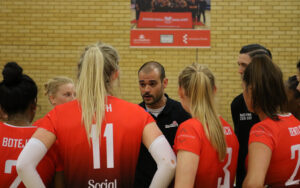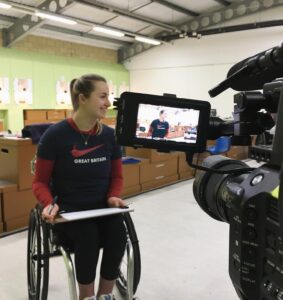Often, athletes aren’t aware of just how many transferable skills they’ve developed during their years in sport. From leadership experience to problem-solving, athletes bring a lot to the table. Businesses today want YOU and your transferable, or ‘soft’, skills. Bear this in mind when applying for jobs – know just how valuable you are!

We’ll start with an obvious one – TEAMWORK
Part of a successful elite team? That’s music to an employer’s ears. They can instantly recognise that you’re a team player and can work effectively with others, for the good of the group. Even in individual sports, athletes work within a larger multidisciplinary team. If you’ve performed to a high level, employers will see that you know how to use your support team to your best advantage. No athlete makes it alone! So – don’t think that, just because you’re not in a team sport, you don’t offer strong teamwork skills.
LEADERSHIP EXPERIENCE
Ever been Captain of an unbeaten team? Or president of the university’s most successful sports club? All of this experience packs an extra punch with employers. Even if you’re not the top goal scorer-captain-MVP this season, try and think of times when you held a leadership role. Do you coach other teams whilst leading the way in the first XI? Perhaps you’ve been a treasurer, secretary or representative. Extra titles like these demonstrate that you’ve stepped up into a role with added responsibility – and that looks great to employers.

PROBLEM-SOLVING
Running a business is never without its difficulties. Employers want people who can whether a storm – and come out stronger on the other side. Demonstrating that you can keep your cool in tough times is invaluable. It could be successful match analysis – how you spent time going over your performance, spotted weaknesses and fixed them. Maybe you helped drag an underachieving team up from the bottom of the table by restructuring or implementing new tactics. These are great topics to discuss in interview, to really show off your problem-solving prowess.

COMMUNICATION
We take it for granted that the athlete life calls for a lot of communication practice. Teammates, staff and supporters can look at things from very different angles and this can get complicated. At the centre of it all, athletes often learn how to bring people together without realising it. In any organisation, there will be people that just don’t gel. Dealing with tricky teammates or over-enthusiastic practitioners takes great communication skills, so don’t undersell your ability if you’ve bridged gaps between those that disagree. Likewise, people looking in from the outside can be a tough crowd. Successfully putting a positive spin on a disappointing performance and keeping supporters engaged is hard! Employers want people who can communicate to their advantage when the going gets tough.

PATIENCE AND PERSEVERANCE
As we know, champions aren’t made overnight. It takes years of dedication to compete in elite sport – and that looks awesome to employers. They’re looking for people who show commitment to long-term goals. Have you been in sport for eight, ten, twelve years? Longer? Sell it! Highlight your persistence to a potential employer. This will prove you’re not going to flake if you don’t achieve your goals in the first week. An athletic career with longevity shows loyalty, even through the rough patches.
TIME MANAGEMENT
This is simple. Athletes will have learned awesome time management skills. From organising a fitness schedule to managing downtime, athletes can offer time management skills like no-one else. If you’ve handled your career alongside study or a job, that proves you’re organised and forward-thinking. It also looks great if you’ve had a hand in your technical training programme or that of others. Did you positively reorganise your team’s training schedule? Choose better training locations to save time? Think about times you made time work for you. Employers want to hear it.

MONEY MANAGEMENT
Competing gets expensive. Whether it’s travel or equipment costs, club fees or venue hire, we’ve all had to open our wallets for our sport. Being a successful treasurer is no small feat. Perhaps you organised fundraising days or secured big sponsorship deals. It might just be something you drop into conversation in interview – “I played in the Cup Final the same month I bought my first house!” – but, for jobs connected to finance, it’s important to highlight these transferable skills.

PERSONAL PRESENTATION
Looking the part is crucial in any job. As an athlete, there are times you’ll have had to put on presentation kit and meet supporters. Maybe you’ll have represented your sport on social media. Think about how you dressed appropriately and (hopefully) brushed your hair for the cameras. These little things seem obvious, but not everybody does it instinctively! Any employee is an ambassador for their company, so employers want you to take pride in your presentation. Luckily, you already know how.

HEALTH AND FITNESS
Employers want healthy employees! And it’s not just for health insurance reasons. An employee with a wealth of knowledge about fitness and nutrition is likely to perform at a higher level. Athletes understand the importance of hydration and eating right. Avoiding tiredness and being productive for a whole day comes down to nutrition and physical fitness. All those early-morning runs and smoothies make you a higher-performing employee than somebody with a low fitness level and poor diet.



